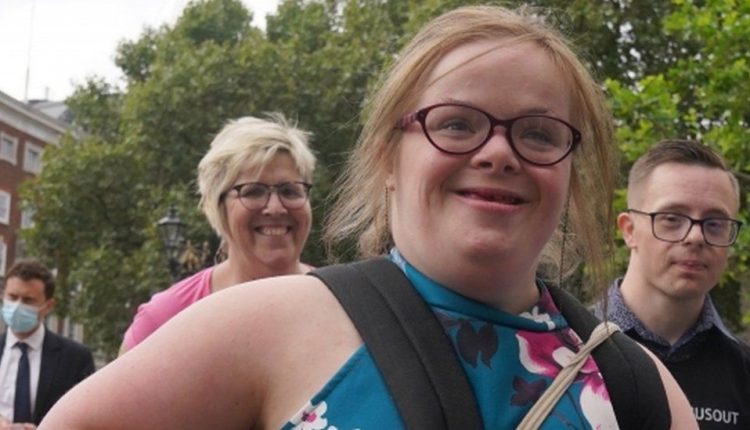Woman with Down’s loses abortion law fight
A woman with Down’s syndrome has lost her High Court challenge over a law that allows abortion up to birth for a foetus with the condition.
Heidi Crowter, 26, from Coventry, brought the case against the government saying the legislation did not respect her life.
Her legal team had argued the rules were unlawfully discriminatory.
As two senior judges dismissed the case earlier, Ms Crowter said she would seek to appeal against the judgement.
Under current legislation for England, Wales and Scotland, there is a 24-week time limit for abortion, unless “there is a substantial risk that if the child were born it would suffer from such physical or mental abnormalities as to be seriously handicapped”, which includes Down’s syndrome.
The judges ruled that section of the Abortion Act was not unlawful, and it aimed to strike a balance between the rights of the unborn child and of women.
Ms Crowter, who is married and campaigns under her maiden name, tweeted after their ruling to say she was upset not to win “but the fight is not over”.
She said: “The judges might not think it discriminates against me, the government might not think it discriminates against me, but I am telling you I feel discriminated against.”
This is a very sad day, but I will keep fighting.
— Heidi Crowter-Living the dream (@HeidiCrowter95) September 23, 2021
Lord Justice Singh and Mrs Justice Lieven said at the outset of their judgement: “The issues which have given rise to this claim are highly sensitive and sometimes controversial.
“This court cannot enter into those controversies; it must decide the case only in accordance with the law.”

image source, PA Media
Ms Crowter’s lawyers had claimed the legislation was unlawfully discriminatory as it was incompatible with the European Convention on Human Rights.
But at the hearing in July, the government said there was no evidence the law discriminated against Down’s.
Speaking in the summer, Ms Crowter said the law was offensive, and she wanted to challenge people’s perception of Down’s syndrome so that they saw “just a normal person”.
She also said then her stance was not a campaign against women’s right to choose.
Ms Crowter brought the case with another two parties – a child who has Down’s, identified in the proceedings only as A, and Máire Lea-Wilson, 33, from London, whose son Aidan has the condition.
Ms Lea-Wilson said she had two boys and felt the judgement “effectively says that my two sons are not viewed as equals in the eyes of the law”.
She added she did not regret bringing the case as it had helped raise awareness of the issues, and said she too would appeal against the judgement.
“Equality should be for everyone regardless of the number of chromosomes they have,” she added.


Comments are closed.